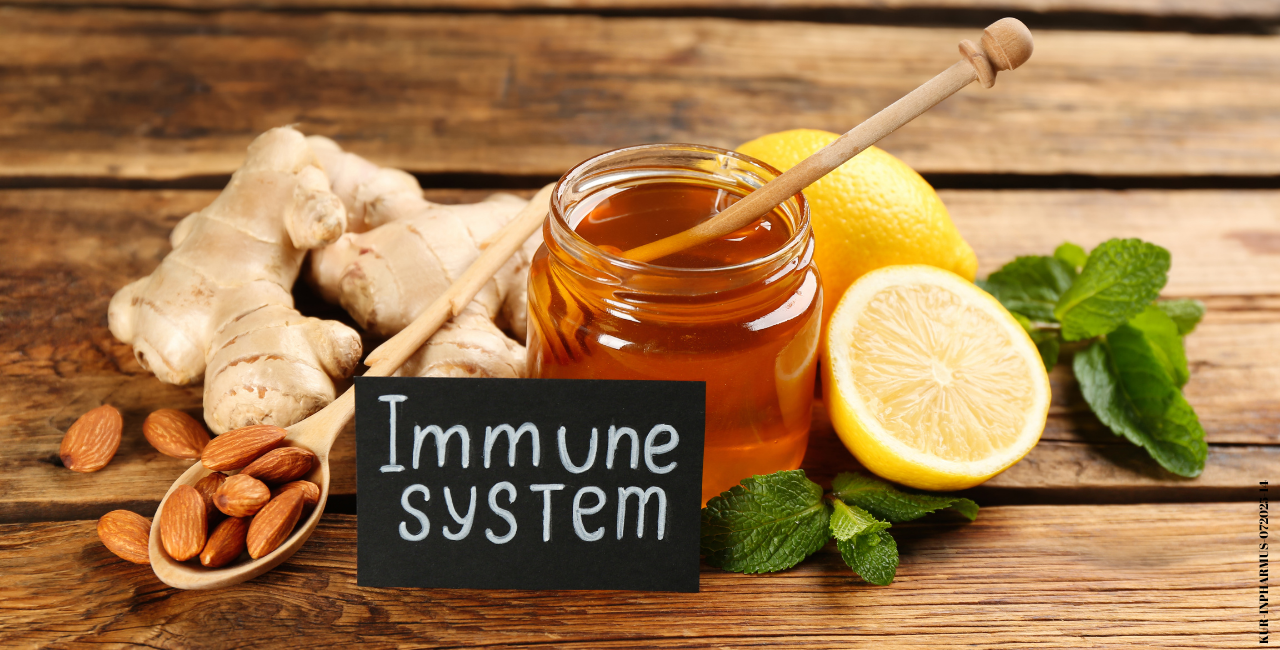
Strengthening the Immune System During Seasonal Transitions
Research

As theseasons change, so does our body’s vulnerability to illness. Shifts intemperature, humidity, and daylight hours can weaken our immune response,making us more susceptible to colds, flu, and other infections. The good newsis that we can support our immune system through science-backed nutritional andlifestyle strategies. The immune system defends the body from foreign, invadingorganisms, promoting protective immunity while maintaining tolerance to self.[1]
1.Nutrition: The Foundation of Immunity
Propernutrition plays a vital role in maintaining a healthy immune response. A gooddiet cannot boost immunity on its own, but malnutrition can impair immunefunction. No one food or nutrient will prevent illness, but a well-balanceddiet is key to a strong immune system.[2]
Micronutrientssuch as vitamins A, C, D, E, B6, and minerals like zinc, selenium, and iron areessential for immune function. These nutrients help your body’s immune responsefunction properly.2
Vitamin C, inparticular, contributes to immune defense by supporting various cellularfunctions of both the innate and adaptive immune system. Foods like citrusfruits, strawberries, and bell peppers are great sources of this criticalvitamin.2
besides this,the implications of vitamin D deficiency on the immune system have becomeclearer in recent years and in the context of vitamin D deficiency, thereappears to be an increased susceptibility to infection and a diathesis, in agenetically susceptible host to autoimmunity.1
2. Hydration: Often Overlooked, Always Important
Hydration doesn’t necessarily protect you from germs and viruses, butpreventing dehydration is important to your overall health.
Dehydration can cause headaches and hinder your physical performance,focus, mood, digestion, and heart and kidney function. These complications canincrease your susceptibility to illness.[3]
3. Limit added sugars
Emergingresearch suggests that added sugars and refined carbs may contributedisproportionately to overweight and obesity. Obesity may likewise increaseyour risk of getting sick.
According to anobservational study in around 1,000 people, people with obesity who wereadministered the flu vaccine were twice as likely to still get the flu thanindividuals without obesity who received the vaccine.
Curbing yoursugar intake can decrease inflammation and aid weight loss, thus reducing yourrisk of chronic health conditions like type 2 diabetes and heart disease.
Given thatobesity, type 2 diabetes, and heart disease can all weaken your immune system,limiting added sugars is an important part of an immune-boosting diet.3
4. The Role of Gut Health
Researchsuggests that a flourishing network of gut bacteria can help your immune cellsdifferentiate between normal, healthy cells and harmful invader organisms.3Probiotics were defined as ‘live microorganisms which, when consumed inadequate amounts as part of food, confer a health benefit on the host’.[4]
The beneficialeffects of probiotics have been demonstrated in many diseases. Fermented foodsare rich in beneficial bacteria called probiotics, which populate yourdigestive tract. These foods include yogurt, sauerkraut, kimchi, kefir, andnatto.3
5. Sleep, Stress, and Lifestyle Factors
Relievingstress and anxiety is key to immune health. Long-term stress promotesinflammation, as well as imbalances in immune cell function.3
In addiotional,sleep and the circadian system exert a strong regulatory influence on immunefunctions.[5]
Activities thatmay help you manage your stress and sleep routine include meditation, exercise,journaling, yoga, and other mindfulness practices. You may also benefit fromseeing a licensed counselor or therapist, whether virtually or in person.3
While nosingle strategy guarantees immunity from illness, a combination ofnutrient-rich foods, proper hydration, limited sugar intake, natural remedies,gut health, and lifestyle care can give your immune system the support itneeds—especially during seasonal transitions. Let this time of year be areminder to care for your body holistically, from the inside out.
References:
[1] https://pmc.ncbi.nlm.nih.gov/articles/PMC3166406/
[2] https://www.mayoclinichealthsystem.org/hometown-health/speaking-of-health/support-your-immune-function-with-good-nutrition
[3] https://www.healthline.com/nutrition/how-to-boost-immune-health#7-Stay-hydrated
[4] https://pmc.ncbi.nlm.nih.gov/articles/PMC4006993/#S11
[5] https://pmc.ncbi.nlm.nih.gov/articles/PMC3256323/
.avif)
.svg)

.svg)